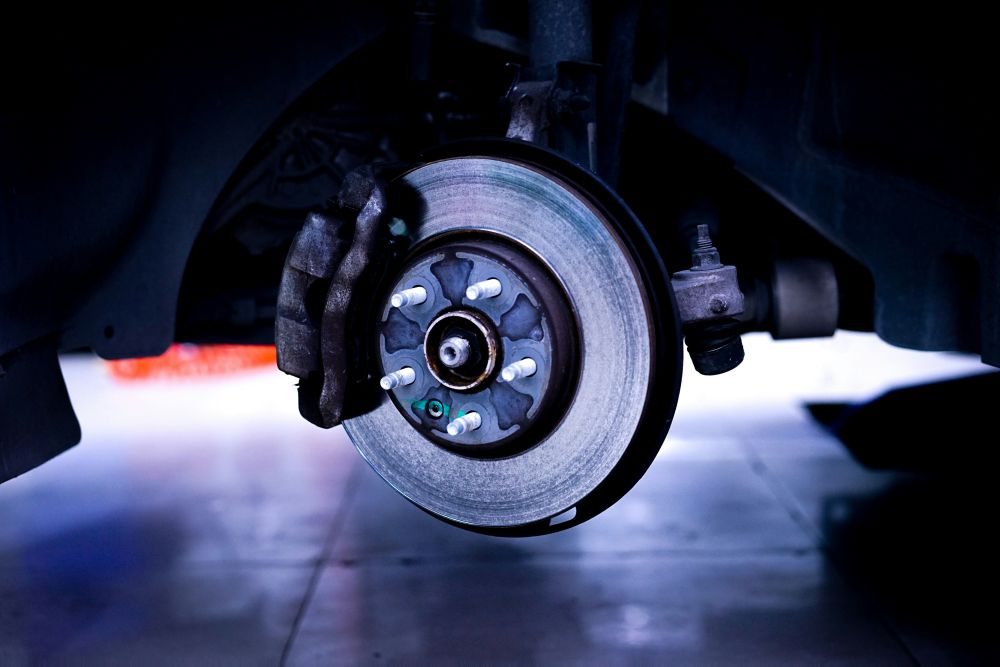Brake Pads Service
 The Importance of Quality Brake Pads for Your Vehicle
The Importance of Quality Brake Pads for Your Vehicle
When it comes to vehicle safety, few components are as critical as your brake pads. They’re the heart of your car’s braking system, responsible for converting motion into stopping power. Whether you’re driving through city traffic or cruising down the highway, maintaining reliable, high-quality pads ensures that your vehicle stops safely and efficiently every time.
What Brake Pads Do
Pads are the friction material that presses against your car’s brake rotors to slow or stop the wheels. Each time you apply the brakes, the pads generate friction that converts kinetic energy into heat. Over time, this constant friction causes wear, which means pads must be inspected and replaced periodically to maintain safe braking performance.
Types of Brake Pads
Not all brake pads are created equal. Different materials provide varying levels of performance, noise control, and longevity. The most common types include:
-
Organic (Non-Asbestos Organic or NAO)
These pads are made from materials like glass, rubber, and Kevlar. They’re quiet and gentle on rotors, making them ideal for everyday driving, but they tend to wear faster and produce more dust. -
Semi-Metallic
Made from a blend of metal fibers and friction compounds, semi-metallic pads offer strong stopping power and good heat resistance. They’re a popular choice for performance and heavy-duty vehicles but can be slightly noisier than organic pads. -
Ceramic
Ceramic pads are known for their durability, low noise, and minimal brake dust. They perform exceptionally well in a wide range of temperatures, making them a great choice for drivers who value smooth, consistent braking performance.
Benefits of Quality Pads
-
Improved Safety: Fresh, high-quality pads shorten stopping distances and maintain consistent braking in all conditions.
-
Longer Rotor Life: The right pad material reduces wear on your rotors, extending their lifespan.
-
Quieter Operation: Premium pads are designed to minimize squealing and vibration.
-
Better Performance: Quality pads maintain their friction and responsiveness even under extreme heat or pressure.
When to Replace Your Brake Pads
Pads don’t last forever. Depending on your driving style, environment, and pad material, most pads last between 30,000 and 70,000 miles. Common signs you may need new pads include squeaking or grinding noises, longer stopping distances, or a pulsating brake pedal. Routine inspections during oil changes or tire rotations can help catch wear before it becomes a safety concern.
It’s recommended to replace brake pads in pairs—either both front or both rear—to ensure balanced braking performance and even wear across the system.
The best brake pad depends on your driving style. Organic pads suit everyday drivers, semi-metallic pads are ideal for performance or towing, and ceramic pads offer the best combination of quiet operation and long life.
Other Services:
Towns Serviced:
Mundelein, IL
Vernon Hills, IL
Green Oaks, IL
Mettawa, IL
Knollwood, IL
Grayslake, IL
Gurnee, IL
Lake Forest, IL
North Chicago, IL
Waukegan, IL
Makes Serviced:
Toyota
Volkswagen
Hyundai
Ford
Honda
Nissan
Kia
Chevrolet
General Motors
Stellantis
BMW
Mercedes-Benz
Subaru
Jeep
Tesla
Mazda
Volvo
Audi
Lexus
